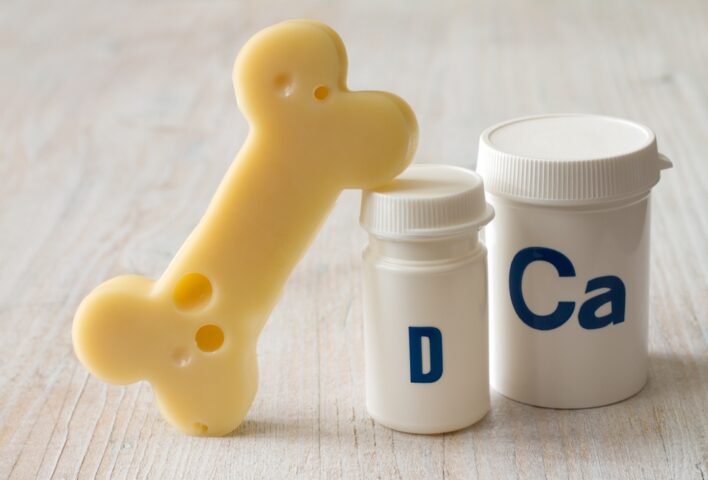Ask the Dietitian: Bone health
As we age it is important to keep our bones healthy and strong. Registered dietitian Rachael Hunter looks at a few key things to keep in mind when thinking about bone health.

Our bones are alive, and it is important that we look after them throughout our lifetime. When we are young, nutrition is important as we are building up our bone mass until we are in our twenties. As we age it is important to keep our bones healthy and strong to reduce the risk of conditions such as osteoporosis. This article will go over a few key things to keep in mind when thinking about bone health.
Calcium
Perhaps the star of the show when it comes to bone health, most of us already know that we need good amounts of calcium in the diet to keep our bones strong. Adults need around 700mg of calcium a day, and the good news is that most of us will be able to meet this by following a healthy balanced vegetarian diet. Some good sources of calcium are dairy foods (such as milk, yoghurts, and cheese), leafy vegetables, soya beans, and even foods like bread which often have it added. You do not need to count up exactly how much calcium you are having; it is about aiming for variety in the diet and making sure you’re including calcium-containing foods.
Plant-based milks are usually also good sources of calcium, and manufacturers tend to fortify them to match what you would get from cow’s milk. However, the important thing to be aware of is that organic plant-based milks will not have this added fortification. This means that not only will you miss out on calcium, but also vitamin D and often iodine too.
Vitamin D
Vitamin D is calcium’s best friend. It helps calcium to be absorbed by the body which then keeps our bones strong. Good food sources include eggs, fortified breakfast cereals, spreads and vitamin D-enriched mushrooms. However, most of us will not be able to eat all we need, and in the spring and summer we will be making vitamin D when we are out (without suncream) in the sun.
As I write this, we are heading into the cooler months and the sun will soon not be strong enough for us to make the vitamin D we need. This is why from October to March/April, the government recommends that we all take a supplement of 10 micrograms a day. Furthermore, some ‘at risk groups’ should consider taking a vitamin D supplement all year round, including:
- People who struggle to spend time outside
- People who often wear clothes that cover up most of their body
- People with darker skin
Exercise
Being active has a huge list of benefits and keeping our bones strong and healthy is a key one, particularly with weight bearing and resistance exercises.
Weight bearing exercises include running, skipping, jumping, and dancing, while resistance exercises include press-ups, squats and using weights. As with all exercise, it is important to go at your own pace, be safe, and find something you enjoy. The NHS website and Royal Osteoporosis Society both have great information around building up these types of exercises.
